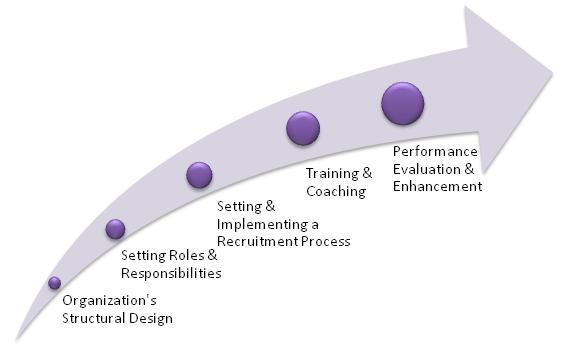Dear Friends,
I’m glad to share with you the below interview/article written about me and published in Project Management Institute (PMI’s) International Development Community of Practice. Link to the official article on PMI’s website for PMI Members is here.
Enjoy the below and let me know what you think,
Afif
———————————————————————————————————-
International Development CoP Member Spotlight
Afif Tabsh, PMP, CBAP
Consultant & Trainer at CMCS – Cofounder & President at Aie Serve
Lebanon
About Afif
 As a management consultant and trainer at CMCS Lebanon I assist corporations and NGOs in Strategic Planning, Process Improvement, Human Capital Management, Project & Program Management and Leadership.
As a management consultant and trainer at CMCS Lebanon I assist corporations and NGOs in Strategic Planning, Process Improvement, Human Capital Management, Project & Program Management and Leadership.
I’m especially interested in the fields of Youth Empowerment, Diversity & Acceptance, Leadership, NGO & SME Management, Social Entrepreneurship, Coaching & Consultancy, and Training Techniques.
I’ve participated, organized, trained and was a guest speaker in numerous conferences, camps, workshops, conventions and seminars under Aie Serve, PMI, UNDP, UNESCO, Rotary, Youth Economic Forum, AUB Alumni Council, Arab Economic Form, LAU Peace & Justice Institute among others.
What Does International Development Mean to You?
With our growing interconnected world, global diversity is becoming a key topic on discussion panels as people from all walks of life are becoming interconnected with each other, do business together, volunteer for similar causes, even though they might be thousands of miles away.
Thus respecting differences and accepting the other has become a crucial factor of successful projects, programs and organizations at large, worldwide.
What Are You Most Passionate About?
I’m very passionate about professional volunteering, this has been reflected through the NGOs and clubs I have founded and others that I’m engaged in at the Board level.
Who Is Your Hero & Why?
My biggest hero so far has been my father who was able to balance a very busy life as a doctor with his passion for serving the community and promoting active citizenship along with taking care of his family and private life.
What Is One Strategy for Inclusion that You Can Share?
One of my best strategies is believing in the potential of individuals and focusing on respecting the differences, accepting the other and loving them for their humanity. Every person has a lot of potential to give, it’s just a matter of taking your time to understand them and see things from their perspective, know what they are good at and put it to work. When working in teams, it proves to be the best tool to really utilize the full potential of the team, as you don’t point fingers at them or have a prejudgment that they are incapable, but rather start from the preposition that they have the potential and you’re just there to uncover it.
What Exciting Projects, Programs or Portfolios Are Your Working On?
I’m currently working on 4 very exciting programs in the volunteer youth NGO I’m leading called Aie Serve (www.AieServe.org – http://www.Facebook.com/AieServe). The programs are:
- Aie Power – Platform for Youth to Transfer Project Ideas into Reality
- Aie Consult – Incubator & Consultancy Program for Youth Led NGOs
- Aie Skills – Training Program to Empower Youth with Soft, Life and Managerial skills
- Aie Clubs – Network of Youth Lead Clubs in Universities and Local Areas that do Community Development, Service and Awareness Activities
What Is Your Favorite Book & Author?
I have 3 favorite books:
- Who Moved My Cheese
- The 7 Habits of Highly Effective People
- Drive: The Surprising Truth About What Motivates Us
What Have You Done to Change the World? What Will Your Legacy Be?
One of my proudest achievements is Aie Serve, I cannot say enough about it. I co-founded the organization 6 years ago with a group of friends from all walks of life, different countries, different majors, different ethnicity and different interests but with a shared vision: Serving The Community. From there it grew from a group of friends, to a team and an organization.
The true value of Aie Serve is not just what it does, but the fact that it is run completely by volunteers and the way it is managed internally. The core values of the organization drive it, and drive its programs and way of work. Those core values are simple, yet powerful as they make the way to move forward simple and straight forward.
Our values are: Respect, Acceptance & Love.
Respecting others’ point of views and beliefs no matter what, accepting differences and considering them the seeds of diversity and finally, loving others for who they are, and not for their background, ethnicity, beliefs, colour or economic status.
If You Weren’t In Project Management, What Would You Be Doing?
If I wasn’t in project management I would be in the field of talent or human capital management. I believe working with, developing, empowering, and supporting people is absolutely crucial for everything we do in this world. Human potential is infinite, thus those who know how to tap into it, grow it and sustain it, will lead success.
 I’d like you to meet Youssef Aziz,
I’d like you to meet Youssef Aziz,


 As a management consultant and trainer at
As a management consultant and trainer at 


